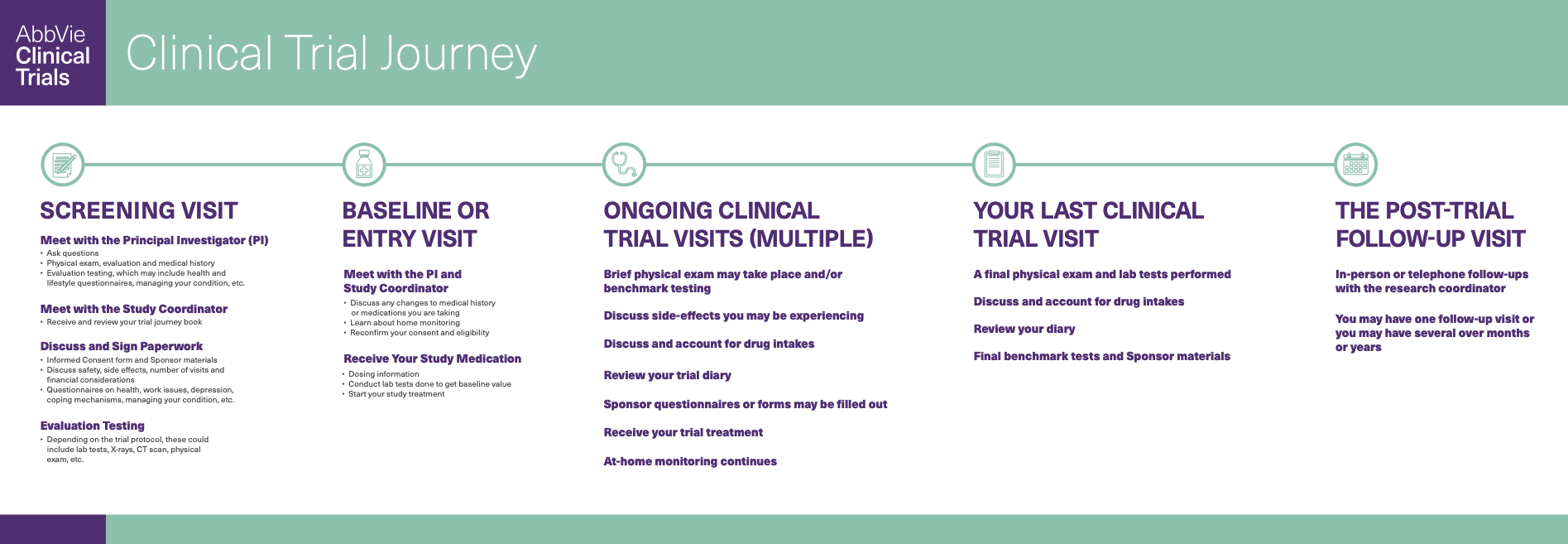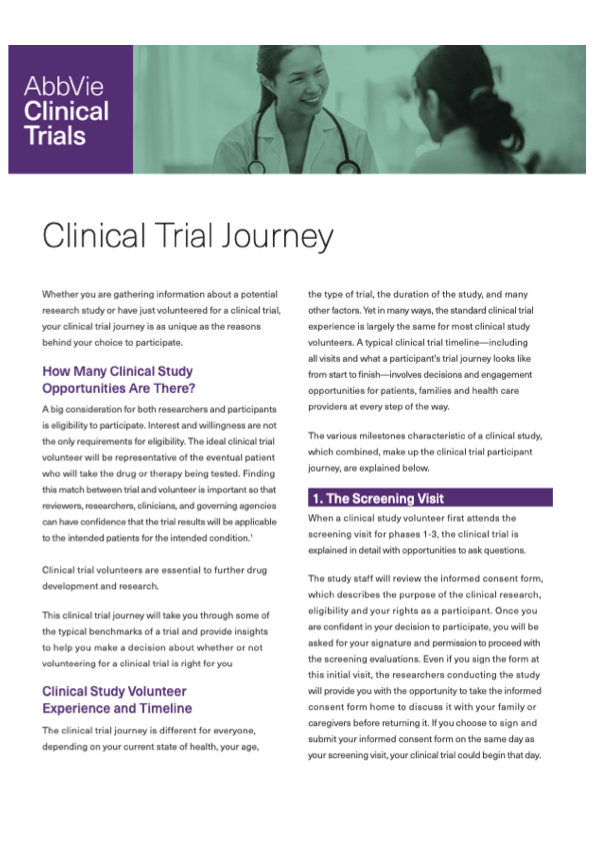What is a clinical study? A clinical trial, or clinical study, is a research study involving human subjects that test new treatment methods, new drugs, and methods for measuring the effectiveness of a test treatment on a disease or medical condition. Virtually all medical advances happen because of the dedicated volunteers who have taken part in clinical trials; without them, the medical community couldn't go on to help millions of patients.
These carefully planned-out clinical research studies allow scientists to answer questions like: "Does drug A work better than drug B?" or "Do patients recover faster if they get this new drug before or after cardiac surgery?" Scientists can accurately evaluate medications by studying the effects on healthy people and those with the condition the drug is designed to target.
WHAT IS CLINICAL RESEARCH?
Clinical research is a broader term that describes all kinds of research involving people to study the causes of disease and potential interventions or investigative drugs. In all clinical research, researchers may directly or indirectly interact with human tissue, blood, organs or genes. Clinical trials involve human participants.1
Read more about the modern clinical trial process in Clinical Trial Phases
CLINICAL TRIALS 101
To get an overview of how volunteering for a clinical trial works to move research forward, see Why participate in a clinical trial.
Or, to have a “Clinical Trials 101” experience, including an overview of a clinical trial is really like, download Clinical Trial Journey here.



